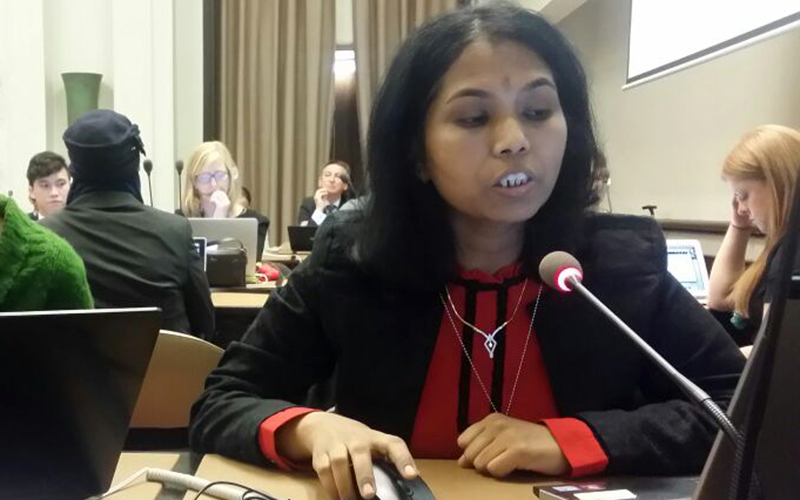Sai Jyothirmai Racherla of ARROW was at the fourth meeting of the Inter-agency and Expert Group on Sustainable Development Goal Indicators (IAEG-SDGs) from 15 to 18 November 2016 in Geneva, Switzerland. She presented this joint statement on behalf of civil society stakeholders present at the meeting.
Work plans for Global SDG Indicators Categorised as Tier III
We welcome the work thus far on the Global SDG indicators and the role played by different stakeholders in this process. In 2016, we are already in the implementation phase of the Agenda 2030, and having all Tier III indicators ready for monitoring at the soonest possible time will be critical for the review of the progress towards SDGs.
We call for the following actions with regards to the TIER III work plans:
a) Work plans for all the Tier III indicators should be implemented, and decisions around the custodian agencies for the indicators that do not have a custodian agency yet, are all made at this meeting itself. We call for a fast track timeline, to enable review and monitoring of all Tier III SDG indicators at the soonest possible time.
b) Tier III indicator work plans should include the active involvement and consultations with National Statistical Offices, including from low income countries and fragile states, and civil society organisations on the methodology development, standardisation of data collection methodologies, concepts and measurements, piloting of data collection, and validation. These work plans should also include capacity strengthening and financial resources plans as well.
c) Work plans should map and build on existing data and metadata already being collected by the National Statistical offices (NSOs) and other national agencies as much as possible to avoid additional reporting burden, however where there is a need to collect new high quality data, in the spirit of a transformative and ambitious 2030 agenda, this should be encouraged and systems should be put in place to collect such data.
d) I would also like to reiterate the point made by the previous speaker on Tier 3 indicator 5.6.2. It is discouraging to see the dilution of the indicator by including men given that Goal 5 specifically focuses on achieving gender equality. The focus of the indicator on women is to address the historical discrimination women face in accessing sexual and reproductive health information and services. We request for the indicator to retain the focus on women. At the same time we welcome the removal of upper age limit recognising the sexual and reproductive health information and services needs for women above 49, however it is also important to address the needs of adolescents in the age group of 10-14. In addition, as stated in our earlier statements, this indicator deserves to move to Tier II as solid baseline data exists and tested methodologies are supported by expert UN agencies. We hope the work plan for this indicator take into account all the points stated.
e) Member States made a promise to “leave no one behind” in our pursuit of sustainable development. Work plans should explicitly define methods for data disaggregation to monitor equitable progress using diverse set of stratifiers. In conclusion, we call for firm integration of principles and standards that promote equality and protect human rights within the indicator work plans;
Thank you


